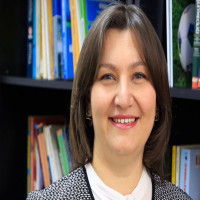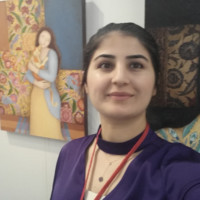Research Articles
Review
Issue Editorial Board

 0000-0003-0892-514X
0000-0003-0892-514X






Aim & Scope
Aim
Journal of Applied Tourism Research [JATOR] aims to contribute to the field of tourism science by producing scientific knowledge.
Scope
JATOR publishes original studies that have not been published elsewhere before, original articles on applied tourism, tourism education, field research, case studies and theories. The scope of the journal consists of all studies that can be associated with tourism science. JATOR is an internationally refereed, other internationally indexed scientific periodical.
Author Guidelines
Attention
Please read the Ethical Principles and Publication Policy and Publication Principles pages before submitting your article
Dear Authors,
In case of article submissions that do not comply with the rules below, researches will be returned to the author for correction within 3 days without being evaluated. Submissions that are not corrected after 3 days will be rejected and will not be evaluated.
1. In its first submission, the article template (version 0) content and the author information in the article file name,
2. If it is a derived or extended publication, it contains the information about the work from which it was derived or extended,
3. If the article was prepared outside the template and the template was significantly damaged,
4. It is the responsibility of the authors to obtain a plagiarism report from one of the programs Turnitin, intihal.net, iThenticate. Total similarity exceeding 20%, excluding the direct citation displaying method, more than 5% from a single work as a citation, and bulk paragraph citations,
5. Submissions where the article file name is not written as "JATOR-first submission".
Ethical Principles and Publication Policy
2. All citations used in the article must be referenced.
3. Authors declare and accept that the article is their own work, that they have not plagiarized in any way, that all responsibilities arising from plagiarism belong to them, and that the journal has no responsibility.
4. Authors must guarantee that they have made a scientific contribution to the article, and it should be known that all authors have responsibility for the article.
5. The corresponding author must guarantee that all authors mentioned in the article consent to be named as authors in the publication.
6. All individuals who have made significant contributions to the study must be included as authors. Other individuals must be included in the acknowledgments section.
7. Authors must declare the institutions, financial sources or conflicts of interest supporting the work they submit.
8. Authors must provide access to the data sets used in the article if deemed necessary and requested.
9. Authors must prepare articles submitted for publication in the journal in accordance with the rules of research and publication ethics. Ethics committee approval must be obtained separately for the research conducted and for clinical and experimental studies on humans and animals that require an ethics committee decision. This approval must be stated in the relevant sections of the article and the documents must be sent to the editorial office.
2. Referees agree to objectively evaluate a paper on a subject in which they have a potential conflict of interest that may arise from a competitive, collaborative or other relationship or connection with any of the authors, or they may decline by stating that it would be unethical and they cannot objectively evaluate it.
3. Referees are obliged to keep the articles they receive confidential and not to use the information they obtain from the refereeing process for their personal gain.
4. Referees should not share their reports or information about the article with others and should not communicate directly with the authors.
5. Referees should be attentive to potential ethical issues in the article and bring them to the attention of the editorial board. This includes any substantial similarity or overlap between the article under review and any other published work that the referee has personal knowledge of.
6. Refereeing should be done objectively. Personal criticism of the authors should not be made; evaluations should be constructive and honest, and the language used should be appropriate to the spoken and written style.
2. No editorial board member should disclose information about an article to anyone other than the relevant author, referees, potential referees and publishers.
3. Unpublished materials disclosed in an article submitted for publication in the journal cannot be used in the editorial board's own research without the author's express written permission.
4. Members of the editorial board do not take part in the journal as authors in any way, except for studies that will be included in the refereeing process such as book reviews, technical notes, etc. (they are not included in the evaluation process in these studies either).
1. Journal of Applied Tourism Research [JATOR] is a peer-reviewed international scientific journal published online every year in June and December.
2. Publications on tourism-related topics can be submitted to the journal. The responsibility and rights to use the publications for any benefit belong entirely to the authors.
3. No application or evaluation fee is charged for articles submitted to the journal.
4. An author who submits an article to the journal cannot have more than one article published in two consecutive issues and in the same year.
5. Articles must be written in Turkish or English.
6. Articles must be prepared in accordance with the journal's writing rules and published forms (article template, copyright transfer form, cover and author information page, etc.) and sent through the DergiPark system.
7. The Editorial Board assigns referees from different institutions, taking into account the principles of impartiality and diversity, and pays attention to the diversity of institutions and authors in publications.
8. Articles submitted for publication in the journal must be prepared in accordance with the rules of research and publication ethics. An ethics committee permit is requested for any type of research conducted with qualitative or quantitative approaches that requires data collection from participants using surveys, interviews, focus group studies, observations, experiments and interview techniques, regardless of when the study was conducted. For studies within this scope, as well as clinical and experimental studies conducted on humans and animals, which require an ethics committee decision, separate ethics committee approval must be obtained, and this approval (board name, date and issue number) must be stated in the article, documented and uploaded to the system. Articles for which ethics committee permits are not obtained and uploaded will not be evaluated and will be rejected. This information must be written for articles that do not require ethics committee approval.
9. In articles submitted to the journal, the contribution rate of the researchers, if any, support and acknowledgment, and a conflict of interest statement must be included in the article.
10. Journal editorial board members cannot submit articles to the journal as authors, except for studies that will be included in the refereeing process such as book reviews, technical notes, etc. (they will not be included in the evaluation process in these studies), and Scientific Advisory Board members cannot submit publications as responsible authors.
11. An article sent to the journal goes through three stages: pre-control, evaluation, and publication. After sending the article, authors can only withdraw the article from the DergiPark system during the pre-control stage. It is not possible for authors to withdraw the article at other stages. The process may end with the acceptance or rejection of the article. The editorial board does not guarantee that the article will definitely be accepted and published.
12. For the pre-control of articles sent to the journal, authors must obtain a plagiarism report from any of the programs iThenticate, Turnitin, or intihal.net. The plagiarism report must be uploaded to the system during the article submission stage. The similarity index rate must not exceed 20%, and the study-based similarity index must not exceed 5%. Authors; declare that there is no plagiarism in the article and that they are responsible for all responsibilities arising from plagiarism. 13. The preliminary control phase of the articles sent to the journal is completed within 10 days from the date of submission and the referee evaluation process is started. During the preliminary control phase, articles that do not comply with the publication ethics or the journal publication principles are rejected or the deficiencies identified are communicated to the authors and corrections may be requested. Authors who are requested to correct the deficiencies during the preliminary control are expected to complete the deficiencies within 4 days at the latest. Otherwise, the evaluation process of the article will be terminated and the article will be rejected. During the preliminary control phase, articles are also examined in terms of publication quality, originality and contribution to science.
13. The preliminary control phase of the articles sent to the journal is completed within 10 days from the submission date and the referee evaluation process is started. During the preliminary control phase, articles that do not comply with the publication ethics or the journal publication principles are rejected or the deficiencies identified are communicated to the authors and corrections may be requested. Authors who are asked for corrections during the preliminary control are expected to complete the deficiencies within 4 days at the latest. Otherwise, the evaluation process of the article will be terminated and the article will be rejected. During the preliminary control phase, the articles are also examined in terms of publication quality, originality and contribution to science.
14. During the referee evaluation process, the article is sent to at least three referees from different institutions to be examined in terms of content. The authors are not informed about the identities of the referees who evaluated the article, nor are the referees informed about who the article belongs to. After the article is sent to the referees, they are asked to decide whether or not to evaluate the article within 7 days at the latest (an additional 5 days in case of reminder), and if they accept the evaluation, they are asked to send their evaluation reports within 14 days. Referees who do not respond within the given period are given a 7-day extension. If the referee does not respond within the given extension period, a new referee is assigned to the article. If the referees need a second round of evaluations, the specified periods start from the beginning.
15. In line with the evaluation reports received from the referees, a decision will be made to publish the article, request corrections from the author, or reject the article. The edits of the evaluating referees must be completed and uploaded to the system within 14 days at the latest. When the corrected version is uploaded, the corrections made must be highlighted in yellow and a response file must be prepared for the referees. If necessary, a 10-day extension may be given to the authors. Otherwise, the evaluation process of the article will be terminated and the article will be rejected.
16. The editorial board; if two referee reports are negative (positive) and one is positive (negative), it sends them to a fourth referee, and if the fourth referee's decision is negative, it rejects the study. Therefore, in order for an article sent to the journal to be published, it must receive a positive opinion from at least three different referees.
17. Articles that pass the referee evaluation stage with an acceptance decision proceed to the publication process stage. During the publication process stage, articles are taken into the publication process according to the decision of the editorial board, considering the date of receipt, article type, publication language, and other conditions within the scope of studies conducted on indexes. At this stage, requests for the publication process of articles to be brought forward for any reason are not taken into consideration.
18. During the publication process stage, when the article is due for publication, the layout control and typesetting processes begin. Authors are given 7 days to make page layout corrections during the publication process. Articles that pass the layout with the approval of the layout editor are sent to their authors for a final check. If the authors do not respond to the checks within 3 days, the article is moved to the next issue or published in its current form by the decision of the editorial board.
19. The opinions in the articles published in the journal are not the opinions of the journal and all responsibility belongs to the authors. No royalty fee is paid to the authors of the articles published in the journal.
20. The Journal of Applied Tourism Research (JATOR) adopts the Open Access policy. The journal accepts that scientific studies that have been peer-reviewed in accordance with the Budapest Open Access Initiative (BOAI) definition can be accessed, read, downloaded, copied, distributed, printed, scanned, linked to full texts, indexed, transferred to software as data and used for any lawful purpose via the internet without financial, legal and technical barriers. Authors and copyright holders accept that all users have free access. Authors whose articles are accepted are deemed to have accepted that the information in their works will be shared by referencing in order to protect the copyright and the rights of the journal under the Creative Commons Attribution License. All articles to be published by the Journal of Applied Tourism Research (JATOR) are licensed with the Creative Commons Attribution 4.0 International License (CC BY).
21. The journal has a policy of cooperation with other international journals in accordance with scientific ethical principles without any direct or indirect interest.
Attention to previous issue authors, all articles have been provided with doi numbers via Zenodo. You can access the article doi numbers via the Zenodo link.

